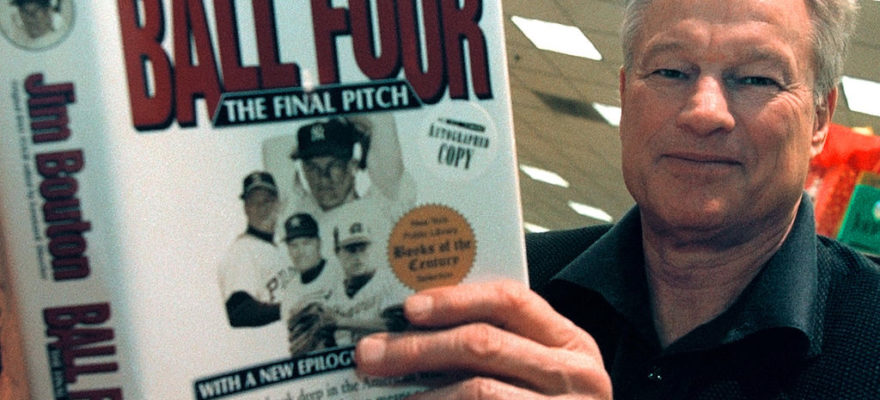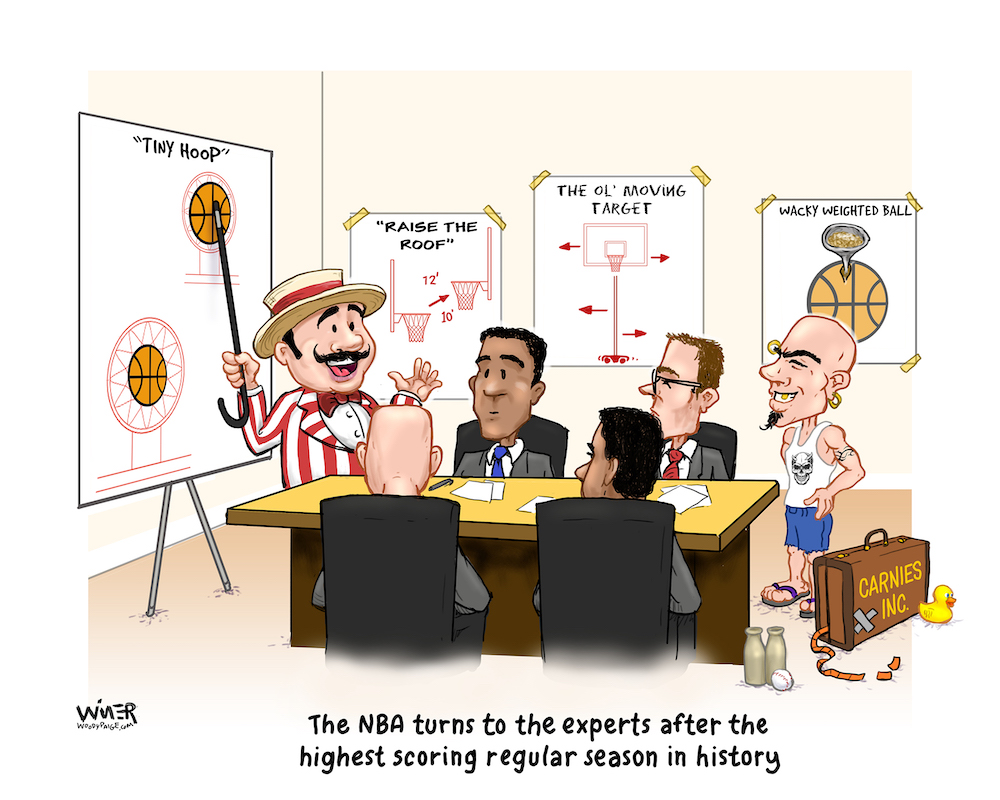One of the books I’ll read — or in this case, re-read — during the coronavirus crisis will be Jim Bouton’s Ball Four. If you haven’t read it, it’s worthy of any list during doing a lockdown. If you’ve read it, it’s worthy of going through again. There are always new things you’ll catch each time, and the perspective changes with the passage of years.
This is the 50th anniversary year of Ball Four‘s June 1970 publication. Sadly, Bouton isn’t around to be part of its commemoration. He died last year, at age 80.
I can vividly picture reading the previewing excerpts in Look Magazine that spring, during social studies class at Eugene’s Spencer Butte Junior High. (Mrs. Henry didn’t care what we read during the designated reading time … well, within reason.)
We still were upset in the Pacific Northwest that the Seattle Pilots had bailed after that single 1969 expansion season and moved to Milwaukee.
After it came out, I read the book, a diary of Bouton’s ’69 season with the Pilots, Vancouver Mounties and Houston Astros.
For the first time.
As time went on, my perspective changed. I went from a kid baseball player, to young journalist covering a lot of baseball, to veteran journalist and fellow author. It was no accident that in my novel, The Witch’s Season, the star quarterback is Rick Bouton.
Each time I re-read Ball Four, it seems even more of a bittersweet, but affectionate ode to the game — warts and all — than a rip job.
Bouton’s anecdotes about Mickey Mantle’s off-the-field habits — they had been Yankees teammates — got the headlines and the most criticism. They violated the code, one mostly scrupulously adhered to even by those who covered the game. (New York Daily News baseball writer Dick Young, who had been a trailblazer in other ways, labeled Bouton “a social leper.”)
But in retrospect, it was kid-glove treatment compared to later revelations, including in Jane Leavy’s 2010 biography, The Last Boy, and even from Mantle himself before his 1995 death.
In later radio show appearances — the one I remember was with ex-MLB pitcher Rob Dibble — Bouton said that he had reconciled with Mantle via phone messages and letters, tied to the tragic loss of a child for each of them.
Bouton and his collaborator, Leonard Shecter, did a lot of cutting to get the manuscript to what was perceived to be a manageable length. It’s also clear that Bouton did considerable self-censoring along the way.
It’s arguable that he violated aspects of the sanctity of the clubhouses in his narrative of that 1969 season, but any perceptive reader –especially in 2020 – “gets” how much “worse” it likely could have been had he been completely opportunistic and merciless.
Most of all, it was human, poignant and funny.
Bouton himself pointed out that pitcher Jim Brosnan had done something similar a decade earlier, and that Brosnan’s two books – The Long Season and Pennant Race – were more reflective and more frank than was acknowledged at the time and since. But Brosnan stayed on one side of the line. Bouton “crossed” it.
I once talked to Bouton for a column.
I had just finished re-reading the book.
Going in, I knew that Seattle pitcher Gary Bell was going to say of every Washington hitter: “Smoke ’em inside” … and be taken seriously by the coaching staff.
I knew the peeping-tom players didn’t go onto the roof of the Shoreham Hotel in Baltimore for fresh air.
I knew that Bouton was going to have too many mai tais in Honolulu and tell his tape recorder: “This is a Hawaiian drink brewed by the evil gods of the volcanoes and no fit potion for a clean-cut American boy like me.”
I knew that Seattle manager Joe Schultz was going to say, “Give him some low smoke and we’ll go and pound some Budweiser.” And that Schultz had a knack of creating colorful compound words.
I was a bit nervous talking with Bouton on the phone. Most scribes will agree: Even if you’ve talked with superstars and Hall of Famers on the job, when you talk with the prominent figures from your youth, you suddenly are that kid again.
“This may sound conceited, but I don’t think anybody has written another Ball Four,” Bouton told me. “What agents have done, what authors have done, what players have done, is written what they thought Ball Four was. They’re trying for bitter, angry and tell-alls . . . But we still haven’t had anybody sitting on the bench and the bus, taking notes, talking into the tape recorder every night, and that would be interesting today.”
None of the other books had had the impact of Ball Four.
“I would say that once a week someone makes a reference to Ball
Four,” Bouton said. “A guy will carry my bags up to my hotel room and
he’ll say, ‘Smoke him inside, Mr. Bouton.'”
Bouton said he was proud that Ball Four helped expose management’s economic exploitation of the players. He pointed out that he was called to the stand to read portions of the book into the record during the landmark Andy Messersmith case. This was the same Bouton who was laughed down at a Pilots’ team meeting when he suggested the minimum salary be raised from $7,000 to $10,000.
The first line in Ball Four was: “I’m 30 years old and I have these dreams.”
I asked him: Did he still have them?
“I don’t know if I have those baseball fantasies anymore,” Bouton said. “I still pitch for the Emerson-Westwood Merchants in semi-pro, and I might dream of striking out 20 of 27 with the knuckleball. But mostly, I dream about making it big in business, Congress and running for president of the United States.”
He was just kidding … or smoking us inside.
I think.
His Ball Four collaborator, Leonard Shecter, died in 1974.
Perhaps 10 years ago, I wrote and emailed Bouton, asking him if he had a copy of the original manuscript — as it was before the cutting and perhaps toning down. And if he still had the tapes of his daily observations. I suggested that perhaps he could attempt to reassemble a more complete version for the next reprint edition. By then, the statute of limitations, in effect, would have expired, but making it salacious and telling all wouldn’t have to be the goal. It was just that some of us couldn’t get enough of Ball Four.
And still can’t.
I didn’t hear back.
About Terry: Terry Frei is the author of seven books. His novels are Olympic Affair and The Witch’s Season, and among his five non-fiction works are Horns, Hogs, and Nixon Coming; Third Down and a War to Go; and ’77: Denver, the Broncos, and a Coming of Age. Information is available on his web site, terryfrei.com. His woodypaige.com archive can be found here.
More from The Woody Paige Sports Network:
- Super Bowl LV odds shift following Tom Brady free agency decision
- Around the Home: Panelists react to news that NBA players test positive for COVID-19
- Melvin Gordon signs two-year deal with Denver Broncos
- Betting odds to be the New England Patriots Week 1 QB in 2020
- A last resort proposal to crown 2019-20 NBA and NHL champions
- Betting odds for where Cam Newton will play in 2020

















